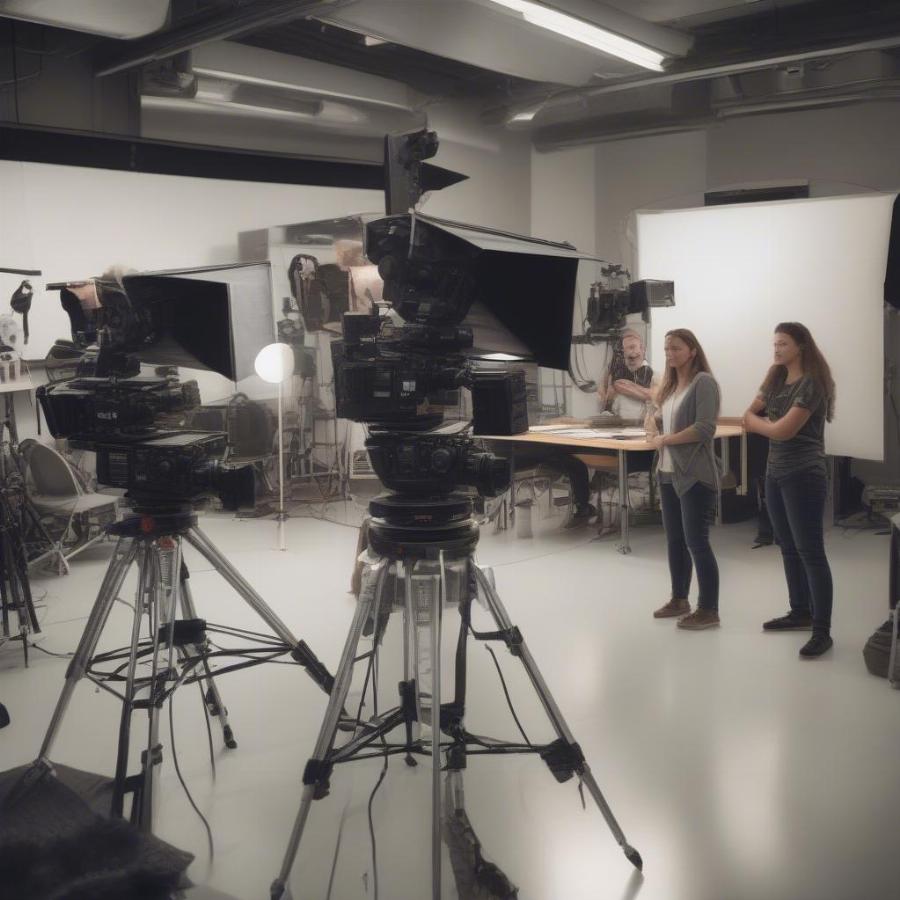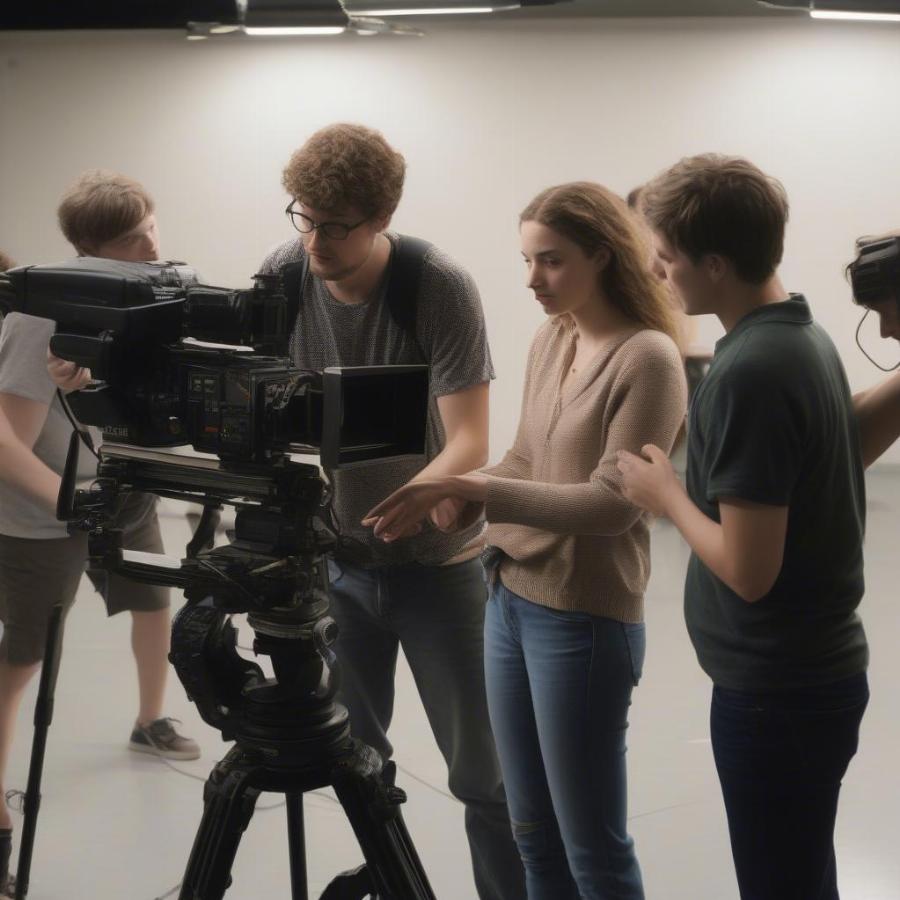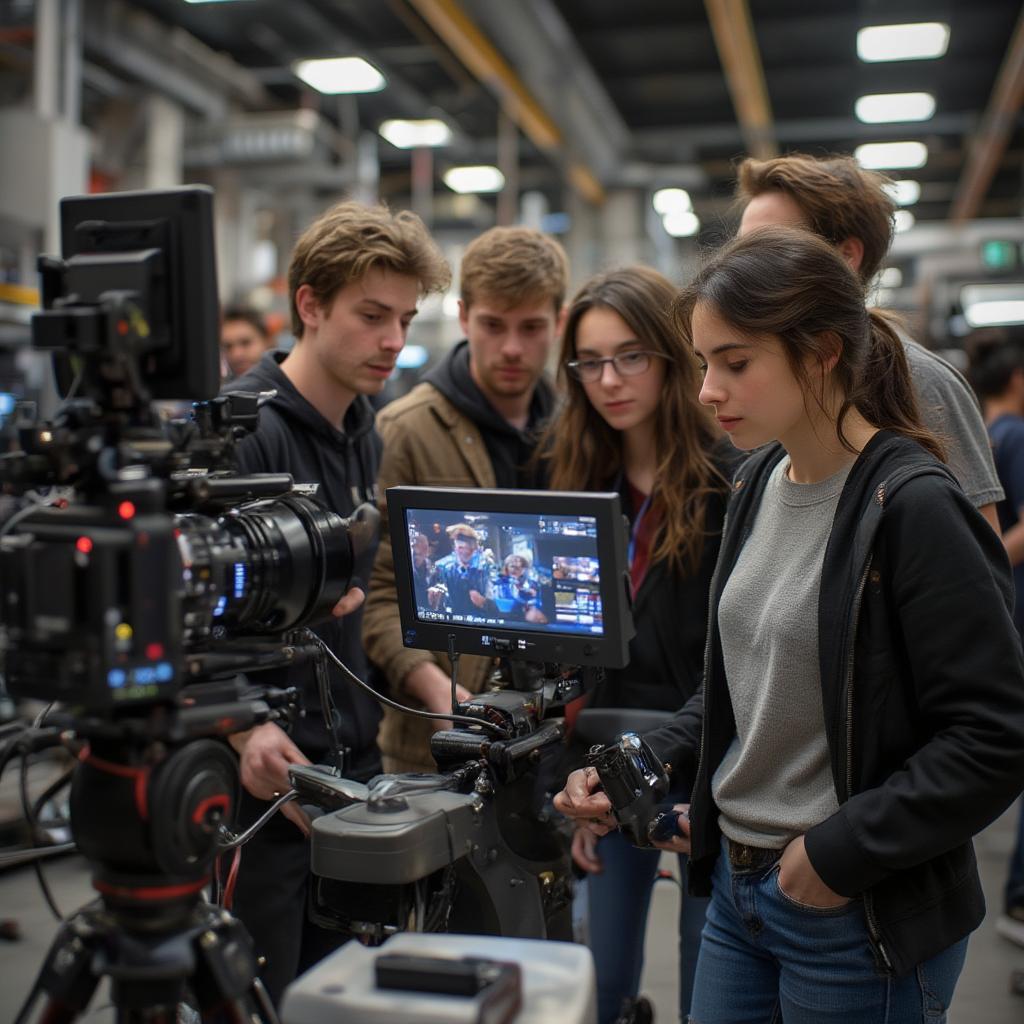Film Making University Courses: Your Path to Cinematic Storytelling

Film Making University Courses offer a structured and immersive learning environment for aspiring filmmakers. From the technical aspects of camera operation and lighting to the creative intricacies of storytelling and editing, these programs equip students with the skills and knowledge needed to thrive in the competitive world of cinema. Whether you dream of directing blockbuster movies, crafting independent documentaries, or exploring the ever-expanding world of digital content creation, the right film making university course can be your stepping stone to success.
Choosing the Right Film Making University Course
The variety of film making university courses can be overwhelming. Some programs focus on technical skills, while others emphasize the artistic side of filmmaking. Some offer specializations in specific areas like animation, visual effects, or documentary filmmaking. To find the perfect fit, consider these factors:
- Your interests: Do you envision yourself directing actors on a grand set, or are you drawn to the intimate world of documentary storytelling? Identifying your passions will guide you towards programs with the right focus.
- Career goals: What kind of filmmaker do you want to be? A commercial director, an independent filmmaker, a cinematographer, or perhaps a post-production specialist? Different career paths require different skillsets, and the right course will prepare you accordingly.
- Program curriculum: Carefully examine the courses offered within each program. Look for a balance of theoretical knowledge and practical experience. Hands-on training is crucial for developing your filmmaking skills.
- Faculty expertise: The experience and expertise of the faculty can greatly influence your learning journey. Research the backgrounds of the instructors and look for professionals with a proven track record in the film industry.
- Facilities and resources: Access to state-of-the-art equipment and facilities is essential for a well-rounded film education. Check if the university offers well-equipped studios, editing suites, and sound stages.

Core Components of Film Making University Courses
Most film making university courses cover a range of core subjects essential for a comprehensive understanding of the filmmaking process. These include:
- Cinematography: This encompasses the art and technique of capturing images on film or digital media. Students learn about camera operation, lighting techniques, composition, and visual storytelling.
- Directing: Directing involves overseeing all aspects of the filmmaking process, from pre-production planning to working with actors and crew on set.
- Screenwriting: This focuses on developing compelling narratives and crafting scripts that effectively translate stories onto the screen.
- Editing: Editing involves assembling and refining the footage to create a cohesive and engaging final product. Students learn about different editing software and techniques.
- Sound design: Sound plays a crucial role in enhancing the emotional impact of a film. Students learn about recording, editing, and mixing sound.
- Production design: This encompasses the creation of the visual world of the film, including sets, costumes, and props.
Navigating the Film Industry After Graduation
Film making university courses provide a solid foundation, but the real learning begins once you step into the professional world. Here’s what you can do to navigate the industry:
- Build your network: Attend industry events, connect with fellow filmmakers, and build relationships with professionals in the field. Networking can open doors to internships, job opportunities, and collaborations.
- Create a strong portfolio: Your portfolio is your showcase of skills and talent. Include your best work from university projects and any independent films you’ve made.
- Seek out internships: Internships offer valuable practical experience and can help you gain a foothold in the industry.
- Be persistent: The film industry is competitive and challenging. Be prepared for rejection, stay focused on your goals, and keep creating.

What are the Career Prospects for Filmmaking Graduates?
Film making university courses open up a wide range of career opportunities, including:
- Director: Lead the creative vision of a film project.
- Cinematographer: Responsible for the visual aesthetic of the film.
- Editor: Assemble and refine footage to create the final cut.
- Screenwriter: Craft compelling narratives and write scripts.
- Producer: Oversee the entire filmmaking process, from development to distribution.
- Sound Designer: Create and implement the sound design for a film.
- Visual Effects Artist: Create special effects for film and television.
- Animator: Bring characters and stories to life through animation.
- Documentary Filmmaker: Tell compelling stories through documentary filmmaking.
“The film industry is constantly evolving, and the demand for skilled filmmakers is always high. Passion, dedication, and a strong portfolio are key to success.” – Amelia Stone, Award-Winning Film Director

Conclusion
Film making university courses provide a structured path to a fulfilling career in the dynamic world of cinema. By choosing the right program and dedicating yourself to honing your craft, you can transform your passion for film into a successful and rewarding career. So, take the leap and enroll in a film making university course to embark on your cinematic journey today.
FAQ
- How long do film making university courses typically last? Most undergraduate programs are three to four years, while graduate programs can range from one to three years.
- What are the admission requirements for film making university courses? Requirements vary, but often include a portfolio, personal statement, and academic transcripts.
- Are there online film making university courses available? Yes, many universities now offer online programs or individual courses in filmmaking.
- Is it expensive to study filmmaking? The cost of film school can vary significantly depending on the institution and program.
- What are the job prospects for filmmaking graduates? The film industry offers a wide range of career opportunities, though it is a competitive field.
- Do I need a degree to work in the film industry? While a degree can be advantageous, it’s not always strictly required. Practical experience and a strong portfolio are often equally important.
- What are some important skills for aspiring filmmakers? Essential skills include storytelling, visual communication, technical proficiency, collaboration, and perseverance.
- How can I improve my chances of getting into a film making university course? Develop a strong portfolio, write a compelling personal statement, and gain relevant experience through internships or independent projects.
- What are some reputable film making universities? Research universities with strong film programs, experienced faculty, and state-of-the-art facilities.




